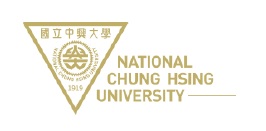National Chung Hsing University


Strengths
National Chung Hsing University was originally founded as the Advanced Academy of Agronomy and Forestry in Tainan in 1919. In 1928, the academy became a department affiliated to Taihoku Imperial University. In 1943, the department again became an independent entity and moved to Taichung. After the retrocession of Taiwan from Japan to the Republic of China in 1945, the school was reorganized and became Taichung Agricultural Junior College. In 1946, it was transformed into the Taichung Agricultural College. In 1961, it merged with the newly created College of Science and Engineering and College of Law and Business to become Chung Hsing University. In 1971, it became a national university and was renamed Chung Hsing National University.
Major, Academics
To choose your courses, please visit the following website:
https://onepiece.nchu.edu.tw/cofsys/plsql/crseqry_all_e
1 credit at NCHU = 2 ECTS You can also take Chinese courses.
Campus
The NCHU is located south of Taichung City and covers an area of around 53 hectares. The university has four experimental forestry stations located respectively in New Taipei City (Wenshan Forestry Station), Nantou County (Huisun Forestry Station), Taichung City (Tungshih Forestry Station) and Tainan City (Hsinhua Forestry Station). It also has two experimental farms located at Wufeng and Wujih in Taichung City and a horticultural experimental station located at Renai in Nantou County. On campus you’ll find a seven-storey library and basement with 2,100 reading spaces, an art center with over 400 pieces of traditional Chinese painting, and a lake. You can do your shopping at NCHU Mart. The campus supermarket that promotes mainly high-quality agricultural products produced by the Institute of Agricultural Resources, such as rice, coffee, honey and soj sauce. Organic vegetables, meat and eggs are also available.
https://oia.nchu.edu.tw/index.php/1-1-about-en-2/2-5-campus-life-en/2-5-4-nchu-facilities-en
https://www.nchu.edu.tw/default/mid/615
A student club called the “International Pioneer Club” is organized to help international students at NCHU. Many activities are offered, such as the sponsorship program, welcome party, Halloween party, Christmas party and culture sharing, for all international students. For more information, please visit the following page:
https://www.facebook.com/InternationalPioneerClub/
You can apply for a scholarship worth around €500/month, for the duration of the semester. For further information: NCHU Taiwan-Europe Connectivity Scholarship
To discover
Taichung is Taiwan’s second most populous city. Its Chinese name means “center of Taiwan”. Located in the Taichung Basin, the city was named during the period of Japanese rule and became a major economic and cultural crossroads. Originally comprising several scattered hamlets, Taichung was designed and developed by the Japanese. It was nicknamed “the Kyoto of Formosa” during the Japanese era, due to its beautiful, tranquil surroundings. The city is home to the National Museum of Natural Science, the National Museum of Fine Arts, the Taichung National Theatre, the National Public Information Library, the Taiwan National Symphony Orchestra, as well as numerous cultural sites such as the Taichung Historical Park, the Lin Family Gardens, numerous temples and the Rainbow Village Although the city is not as lively and festive as Taipei, it nevertheless stands out for its art scene, its flower-filled parks, its much more pleasant climate than in the north of the island and its proximity to natural areas of unparalleled beauty: the sea on one side, the mountains on the other. What’s more, Taichung’s urban planning has succeeded in giving its inhabitants more space, whether in its wide avenues, its many parks or in the architecture of its buildings (see the city’s opera house).
Good to know
Taiwan enjoys a warm climate all year round. Weather conditions fluctuate in spring and winter, while summer and autumn are relatively stable. During the summer (June to August), typhoons sometimes approach or strike the country. We advise you to keep an eye on the weather reports, as weather conditions are often difficult and unpredictable when typhoons hit Taiwan. In autumn (September to November), you can take full advantage of the cool, comforting weather, while Taiwan’s relatively warm and short winters (December to February) are an opportunity to enjoy the magnificent colors of the maple trees.
What's going on?
https://www.world-newspapers.com/countries/asia/taiwan
The data is for information only. Please visit the partner university’s website to make sure you have the most up-to-date information.
Eligibility
Score TOEFL 550 ICD PGE
Documents required
Resume in English
Grades transcript
ID Document
Cover letter in English
Planning
AUTUMN
Orientation: few days before lectures start
Lectures start : early September
End of lectures and exams: early January
SPRING
Orientation: few days before lectures start
Lectures start : early February
End of lectures and exams: end of June
https://oia.nchu.edu.tw/index.php/1-1-about-en-2/2-5-campus-life-en/2-5-2-academic-calendar-en
Procedures
All exchange students must undergo a health examination by a qualified doctor and complete all the sections listed on the health certificate forms sent to you by the university.
If you are staying for less than 6 months, a VISA VISITOR is required.
more information: https://visawebapp.boca.gov.tw/BOCA_EVISA/home.do
An health insurance proof is compulsory (translated into English or Chinese).
Accommodation
On-campus dormitory accommodation is available for international students. More info: https://www.osa.nchu.edu.tw/osa/en/dorm/intro_list.html Off-campus housing is also available, costing between 90€/month and 300/€.
https://www.oia.nchu.edu.tw/index.php/1-1-about-en-2/2-6-accommodation-en


